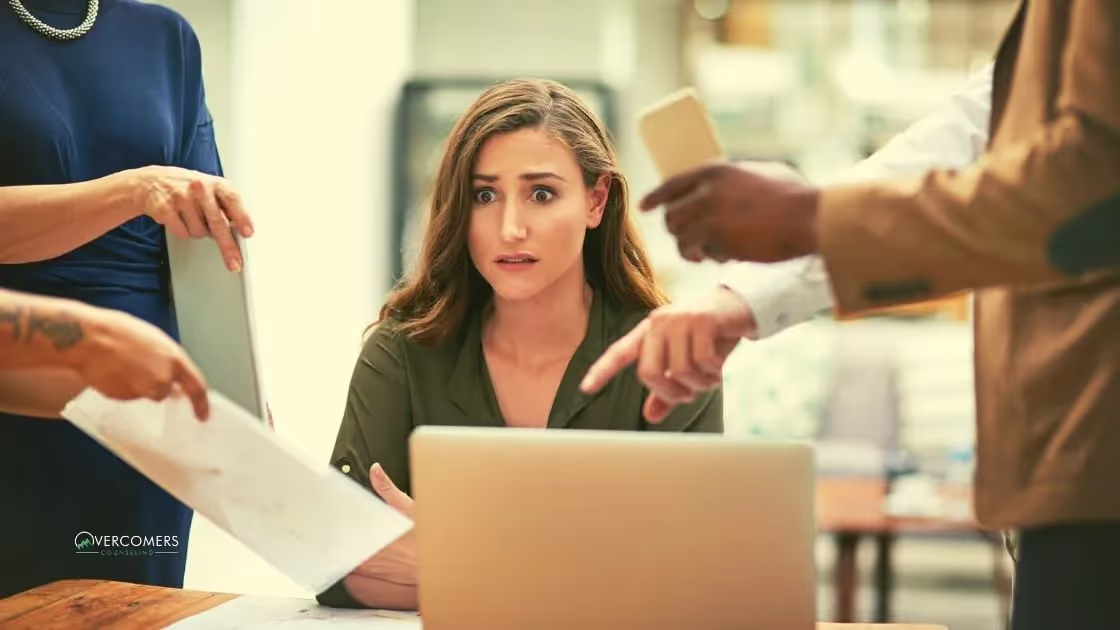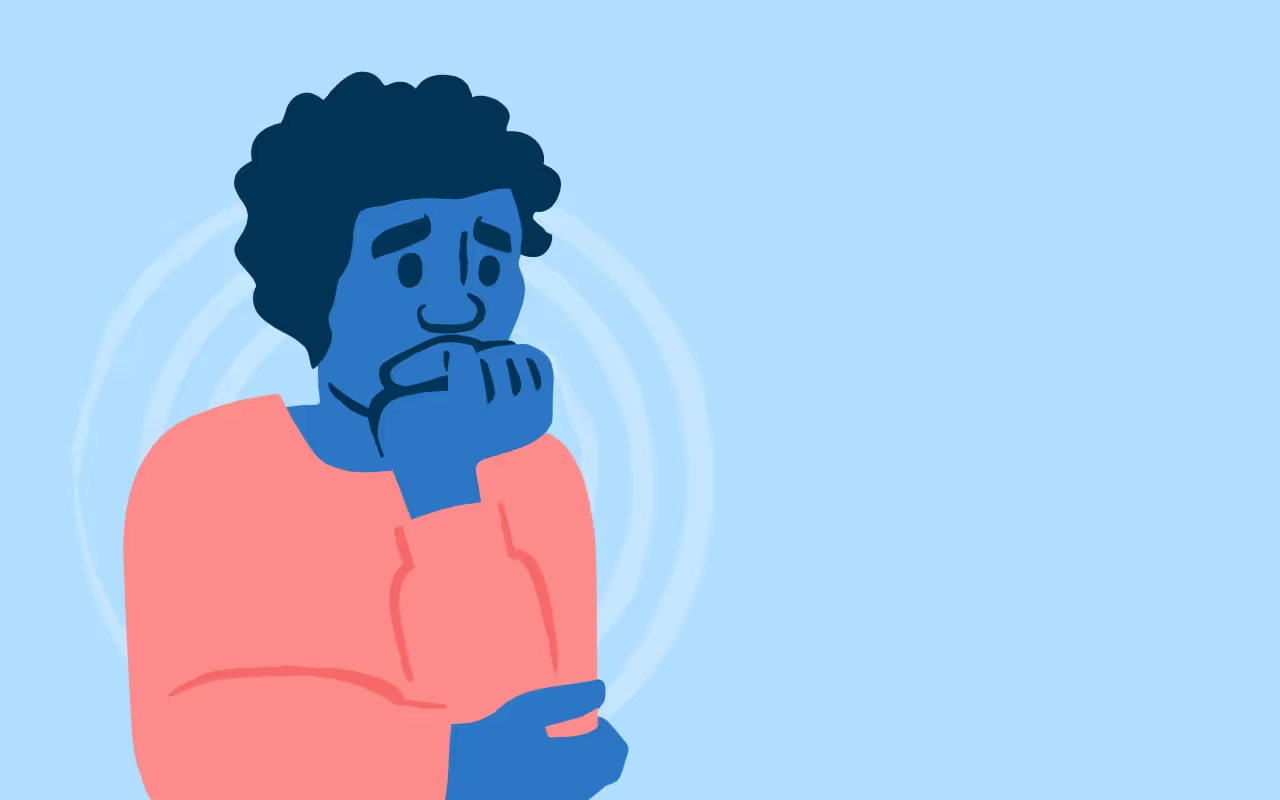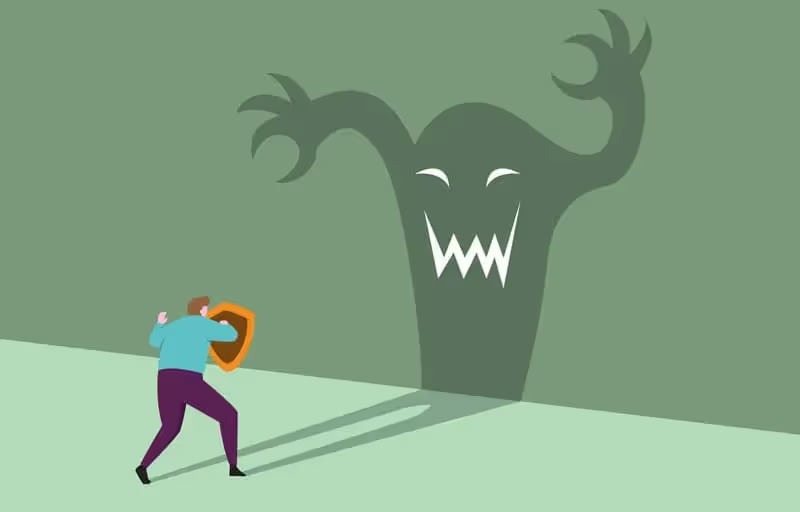Anxiety is one of the most talked about mental health topics on the planet. It has its own diagnostic category and is very commonly medicated. But is that a...

Anxiety is one of the most talked about mental health topics on the planet.
It has its own diagnostic category and is very commonly medicated.
But is that a good thing?
What purpose does anxiety serve?
Is it something we should aim to avoid?
Can it even be avoided?
Let's find out, and discover how to face anxiety.
Most people would rather not experience anxiety at all.
Especially those diagnosed with an anxiety disorder.
It seems to only stand in the way of actually enjoying life.
But, with anxiety becoming so common, isn't it worth it to ask why?
You might be surprised to find out just how important anxiety actually is.
Anxiety is the built-in warning system that alerts us when we are afraid that we are going to be under threat.
Fear is the real-time response to a threat, but Anxiety is the worry that something in the future will be a threat.
Without anxiety there are serious repercussions; you wouldn't be tuned in to your environment, you'd be unaware of others' moods and emotions, and you'd find yourself in bad situations putting yourself and the ones you care about at risk!
Anxiety is a completely normal response and an inherent aspect of being human! It steers us in the direction of safety and concern and teaches us to be aware of our surroundings and intentions.

Okay, so there is a purpose to anxiety, but should we try to avoid it where we can?
No.
Plain, and simple, No.
First and foremost, as mentioned already, anxiety is a completely natural response and has contributed to the survival of the human race for thousands of years.
Secondly, we know with absolute certainty 2 things:
1) Avoiding anxiety makes it worse.
2) If you face anxiety it gets better.
Believe it or not, willingly confronting your anxiety is what makes your anxiety better.
Whether you struggle with specific phobias, social anxiety, generalized anxiety, or any other kind, the only way to improve your quality of life is to face anxiety directly.
Many people attempt to hide from their anxiety by trying to ignore or avoid- using drugs, alcohol, video games, or other distractions to fill the time between feeling anxious.
The problem is the more these behaviors are used as a way of coping, the more you need them; the longer you try to hide from your anxiety the stronger that anxiety grows and the less freedom you have over your own life!

What do you notice about the image above?
Right away you should notice that the person is staring right at the monster on the wall.
But notice also that the monster is actually the person's shadow.
This is exactly how anxiety works.
Unfortunately, our brains haven't quite caught up with society, so our early alarm systems, like anxiety, haven't adapted to civilization.
They're still operating on a system from when there was life-threatening danger around every corner.
In today's world, we are largely safe from man-eating lions chasing us down.
Instead, we worry about traffic, work, bills, relationships, construction, lines, and holidays.
We have way more worries than our ancient ancestors, but far less severe things to worry about.
Our brains haven't caught up to that yet, so our anxiety alarms have the same intensity when thinking about talking in front of a crowd as they did when there was a very real looming threat of an 800-pound predator that wanted to eat us for dinner.
So, almost everything that creates anxiety is not a real external threat, it's an internal worry that is tied to some core concern we have about ourselves.
Like the image above, the way to face anxiety is to identify it as clearly as you can and then confront it until you realize that it's not actually a threat outside of you, it is coming from you.
In fact, that's what it means to "face" anything! You look at it, give it a name, you put a face to the concern so that you can understand it.
The next time you're feeling anxious, put a face on it! Identify what it is exactly that makes you worried and connect that to the part of you that you feel needs protection.
Anxiety is not a fun experience, but it is a necessary one.
And better yet, when you face anxiety you decrease its impact on you and you become braver.
Becoming braver helps you face more difficulties in the future and prepares you to help others through difficult times as well.
To face anxiety means to identify it accurately and understand that the source of your anxiety is almost always connected to your own concern about a core part of yourself.
Anxiety can work for you as a warning system to be more aware of yourself and others, your environment, and potential risks to your well-being.
It's a natural response that all people encounter and is not something to be avoided.
Now that you understand what anxiety is, the purpose that it serves, and how to face anxiety, you can start reclaiming your life!
Now you can become the hero of your story.
Ignoring anxiety can exacerbate symptoms and make it more challenging to manage over time. This can result in a negative impact on your personal, professional, and social life, leading to feelings of isolation and even depression.
Yes, Medicaid provides insurance coverage for therapy services specifically designed to help individuals struggling with anxiety, depression, and other mental health conditions.
It's important that you feel comfortable discussing personal matters with your therapist in order to open up and get more out of therapy sessions; therefore finding someone who meets certain criteria like experience level, expertise areas, and personality is key when selecting a therapist who can give meaningful feedback about how best handle issues related to anxiety or other mental health concerns.
Other activities which have been found helpful in reducing both immediate feelings of anxiousness and long-term anxieties associated with chronic disorders include yoga, journaling, nature walks, art therapy, volunteering, and other low-stress activities. Additionally, developing a healthy lifestyle incorporating adequate sleep, physical activity, and nutritious meals can help reduce overall stress levels.
The duration of anxiety counseling varies for each individual, depending on the severity of their anxiety and their progress in therapy. Our therapists will regularly assess your progress and adjust your treatment plan as needed.
Addressing anxiety is crucial because it can significantly impact your quality of life and overall well-being. Left untreated, anxiety can lead to more severe mental health issues, relationship problems, and difficulty functioning in daily life.